

On March 29, McGill University’s Steinberg Centre for Simulation and Interactive Learning launched a special Simnovate supplement of the British Medical Journal (BMJ) Simulation and Technology Enhanced Learning. The event, held at the Omni Hotel in Montreal, featured an academic symposium as a sequel to last May’s highly successful Simnovate International Summit, which drew 150 “simnovators” from around the world.
“The mission of the original Simnovate Summit was really about simulation, innovation and education to deliver better health care,” explains Dr. Raj Aggarwal, Director of the Steinberg Centre for Simulation and Interactive Learning, and mastermind of the event, a major international initiative bringing together the domains of simulation, education and innovation in the health care arena with a mission to draw on innovations across several diverse fields – including medicine, aviation, gaming, engineering, policy and the arts – to improve health care delivery.
The response from the initial cohort of “simnovators” was tremendous, with a second summit eagerly awaited. “I think the consensus was that Simnovate was not just a summit or a conference, but rather the birth of a movement,” notes Matthieu Crepy, an engineer who was part of Simnovate’s Youth Innovation showcase.
Dr. Kedar Mate, Senior Vice President at the Institute for Healthcare Improvement and a keynote lecturer at Simnovate called it a “magnificent community of scholarship which will surely be a platform upon which many discoveries are made.”
Even coinage of the term “simnovate” has caught on, notes Dr. Aggarwal. “It’s become a word that people associate with the work we’re doing here at McGill and with
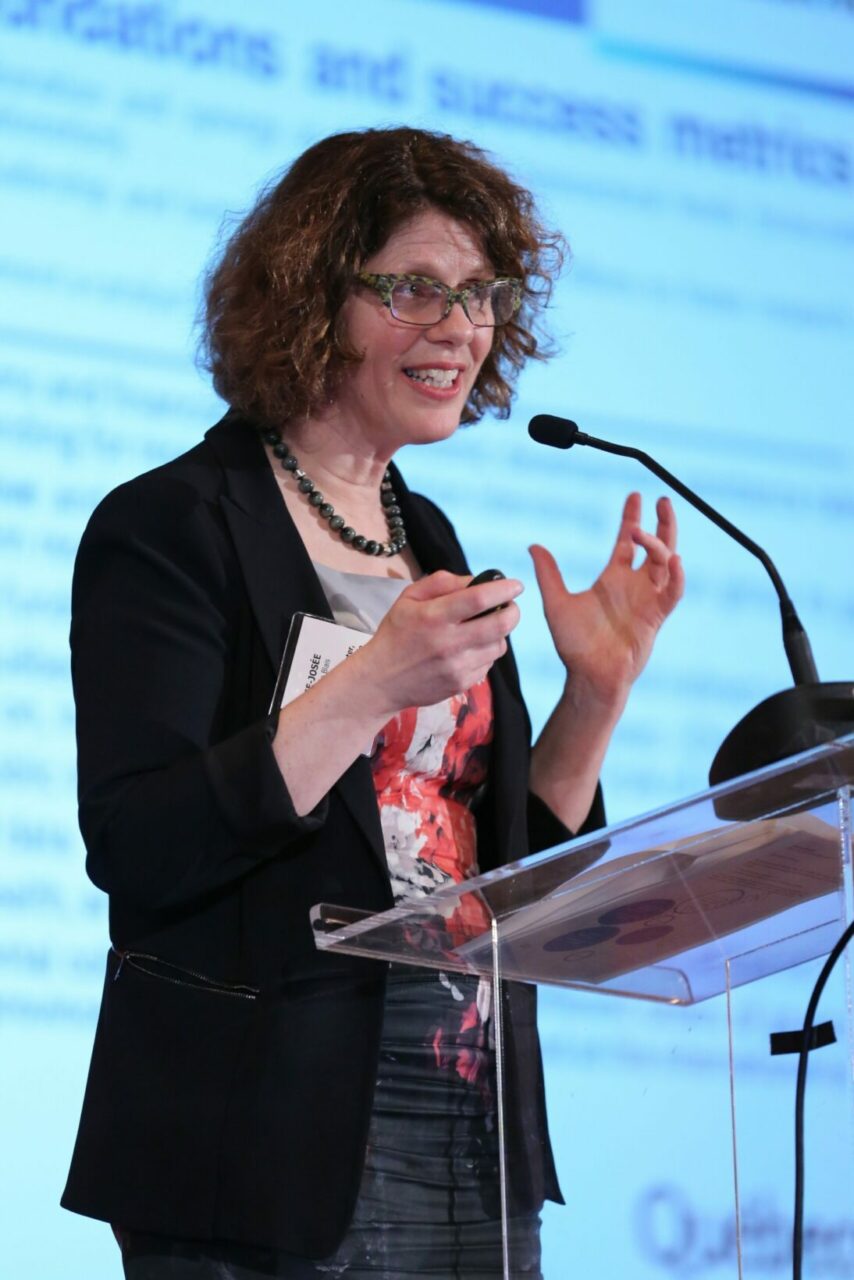
this whole mission.”
“A revolution is taking place in the field of health care education: more and more universities are equipping their laboratories with highly sophisticated equipment,” comments Marie-Josée Blais, Assistant Deputy
Minister, Science and Innovation Sector, in the Ministère de l’Économie, de la Science et de l’Innovation, who spoke about the Quebec Research and Innovation Strategy at the supplement launch event.
A key component of the initiative centres around the creation of four domain groups – Patient Safety, Medical Technology, Global Health and Pervasive Learning – which were originally defined in May 2015 and which gather 48 international experts in diverse fields including medicine, aviation, gaming, engineering, policy, global health and the arts.
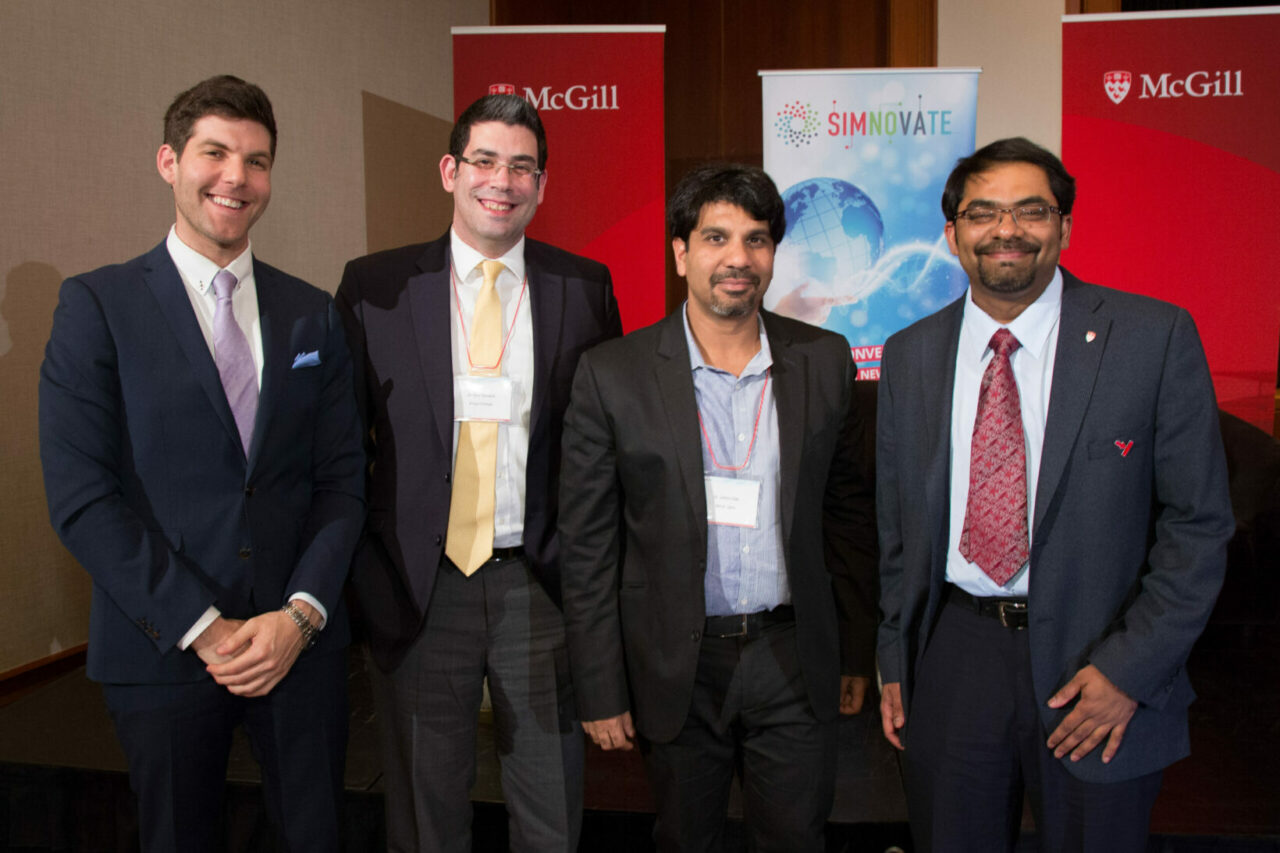
At the 2016 summit, the groups presented white papers that were collaboratively developed through international teleconferences and discussions. “These four white papers have now been translated into academic papers and have been peer reviewed,” says Dr. Aggarwal. “They make up the bulk of the special BMJ supplement, along with an additional two papers that came directly out of the Simnovate summit – one on the cost of innovation and another on youth innovation.”
The BMJ Simulation & Technology Enhanced Learning supplement was guest-edited by Dr. Russell Gruen, Director of the Nanyang Institute of Technology in Health and Medicine in Singapore and an eminent physician with a background in surgical innovation, global health, simulation, patient safety and disparities in health care. Dr. Gruen delivered a keynote address at the supplement launch symposium.
Offering a patient’s perspective, Ms. Katrine Kirk, the World Health Organization Patient Safety Champion
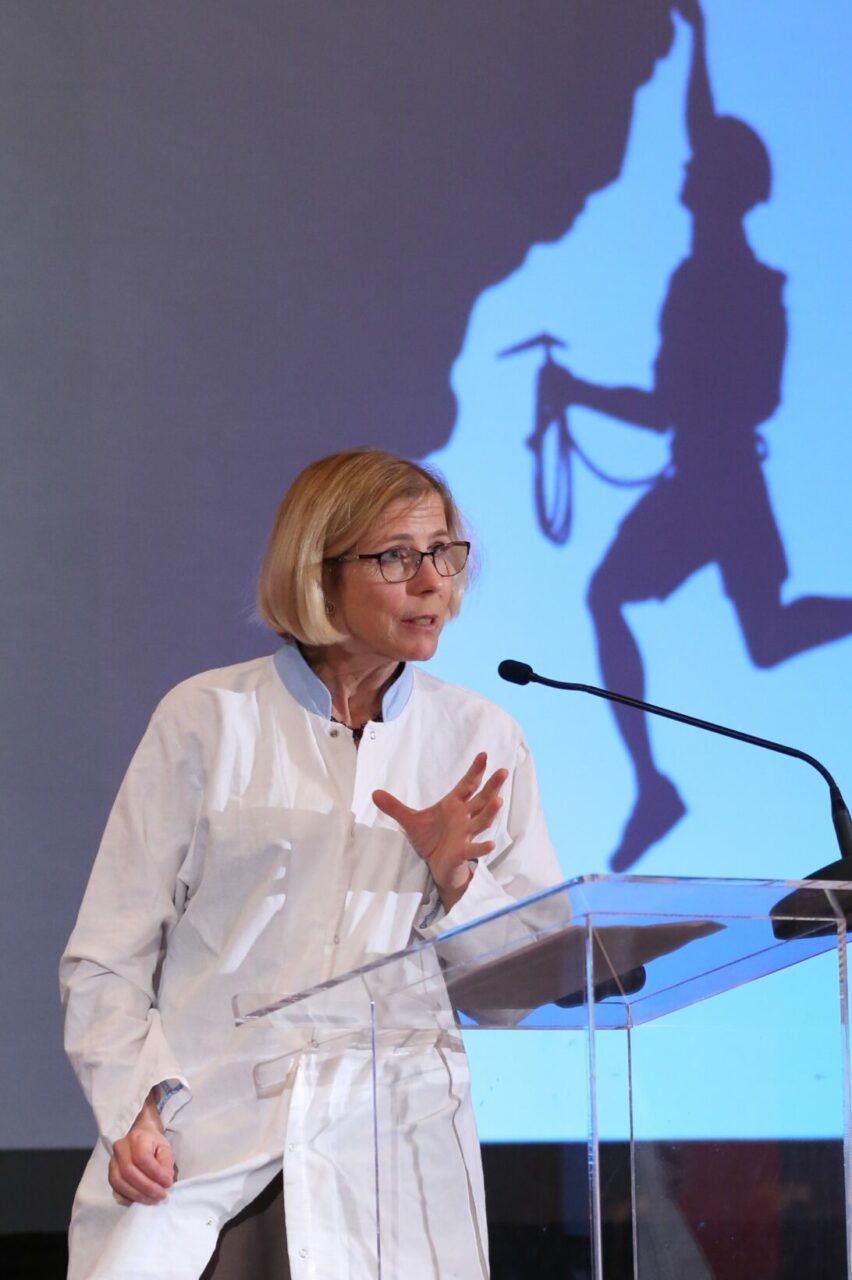
and a lymphoma survivor, delivered a talk about the power balance between patients and health professionals. “The empowerment of patients to get deeply involved in their own care is essential to optimal clinical outcomes,” she notes. “Too many patients are not aware of the important role they and their families can play, and health care professionals should invite patients and families to participate. There are innovative ways to stimulate patient empowerment through serious games and even through dance.”
“Simulation science offers tremendous potential, across a wide range of applications within healthcare. The Simnovate global network exemplifies a fresh approach to how we maximize the learning from simulation and its potential to enhance care processes and improve patient outcomes in both the Western world as well as in low and middle-income countries. I am delighted to be hosting the outcomes of this work in BMJ STEL,” says Dr. Nick Sevdalis, the journal’s editor-in-chief, who was in Montreal for the event.
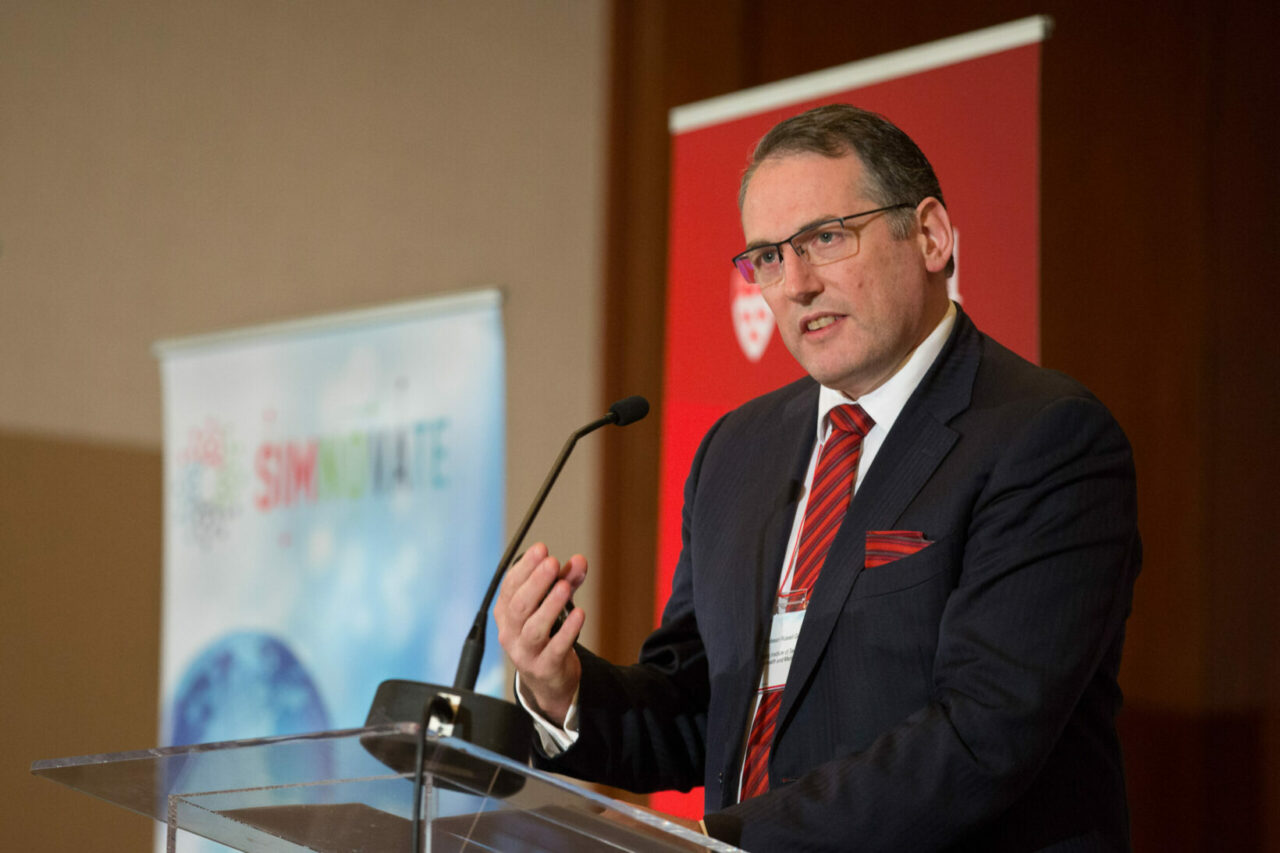
The collection of papers is an “enduring resource” for simulation researchers, notes Dr. Aggarwal. He has dedicated the supplement to the late Arnold and Blema Steinberg, whose foundation has generously funded the project. “We owe tremendous gratitude to the Steinberg Foundation for their generosity, vision and encouragement to help move forward this field.”
Dr. Aggarwal expects that the Simnovate International Summit will likely be back by popular demand in the spring of 2018. “I think all of this – not to sound too grandiose – is about us getting together to ask how do we make society better for ourselves, for our patients, for our community and for our future selves.”
Click here to access the special Simnovate supplement edition of the BMJ Simulation & Technology Enhanced Learning.
About the domain groups
The patient safety domain group looked at why simulation, though it has been shown to be a high-impact training tool that improves clinical skills, has still not been comprehensively
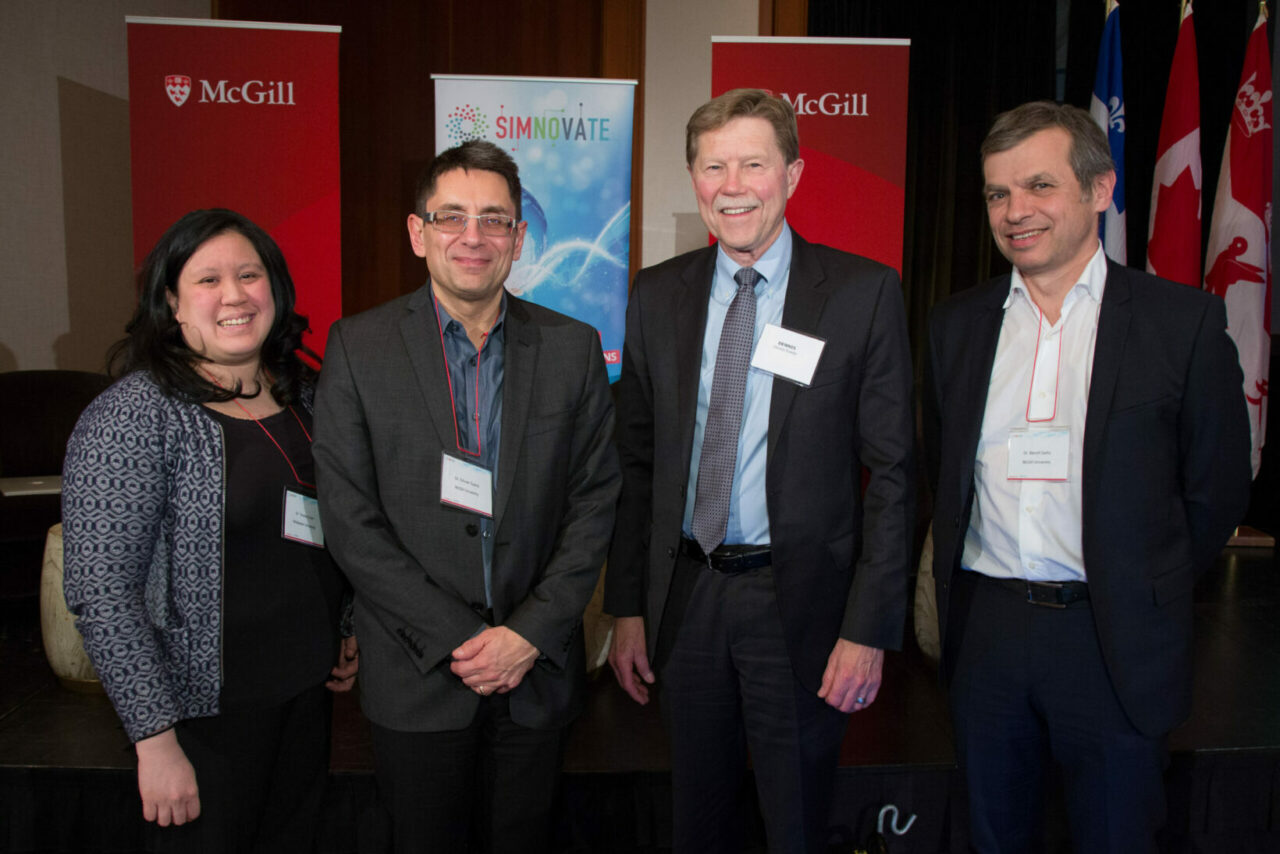
integrated into patient safety solutions. The group explored how this could be done, with special focus on the role of in situ simulation.
Simulation as a tool to reduce risks and costs associated with the adoption of new technologies was the focus of the medical technology domain group, specifically how to better direct innovators and channel resources toward new technologies with the greatest chance of success.
The global health domain group conducted an overview of the use of simulation in low and middle income countries, which revealed a predominance of low-tech manikins and standardized patients for measuring quality of healthcare delivery.
The pervasive learning domain group explored the use of online and serious gaming as a potential engaged learning tool for translating knowledge, skills and aptitudes into clinical competence.
March 30, 2017
